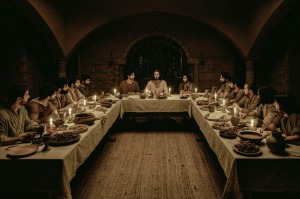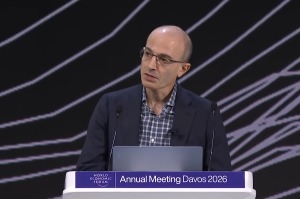Pastor warns that Christians often fall into 2 camps when talking about the End Times

A Texas pastor says when it comes to studying the End Times, many Christians fall into one of two camps: either they obsess over Revelation and try to predict when the rapture might happen or they avoid studying the topic altogether.
Pastor Daniel Lumpee of the Loft Church ministry at The Woodlands Methodist Church in The Woodlands, Texas, preached a sermon earlier this month in which he said it's OK for Christians to have questions about the End Times. However, he added, Christians shouldn't waste their time trying to figure out when the rapture will take place, because this can lead Christians to neglect the call to action that Jesus placed on their lives, like giving to the poor and helping those in need.
“What Jesus is saying is: in your pursuit of orthodoxy, in your pursuit of theological purism, make sure that you don't neglect the poor. Make sure that you don't get so obsessed with the End Times or any theology that someone leads you astray from the straight and narrow of loving people,” Lumpee said.
Lumpee referenced Matthew 24, which highlights how the day and the hour of the rapture have purposely been concealed.
Lumpee said Jesus instructed His followers not to get caught up in trying to figure out when the rapture will happen because this can serve as a distraction.
“I like to think that when Jesus said this, He had the words that you've probably heard from the prophet Micah in the back of His mind. Micah 6:8: ... ‘He has told you, O man, what is good; and what does the Lord require of you but to do justice, and to love kindness, and to walk humbly with your God,’” Lumpee said, quoting scripture.
Christians tend to choose one of two options when it comes to how they decide to approach eschatology, or the study of topics like the End Times, death and the final fate of all human souls, he explained. Christians tend to either obsess over the rapture by trying to figure out more about the End Times and when it will occur or they avoid the topic.
“Many people on the internet … do this. The End Times have become an obsession for them because there's a mystery surrounding it. That’s option A,” Lumpee said. “Option B is this: … And I would guess that a lot of us are in this camp. [We tend to say] ‘Revelation, the End Times, that stuff is kind of weird. It's going to happen. I believe it in Revelation. It's kind of sci-fi, but it's also Scripture, so I know I'm supposed to believe in it. But it sounds so weird that I'm just going to avoid it at all costs.’”
The best option, Lumpee said, is to be somewhere in between heavy fixation and avoiding it altogether. He believes that when Christians aren't obsessing and they don’t avoid the topic, they can then have a “healthy” approach to studying eschatology.
“We don't have to completely study and become obsessed over revelation, and at the same time, we shouldn't neglect our knowledge of the End Times. But instead, having a healthy understanding of what might happen will show us how to live our lives today,” Lumpee said.
It’s normal to have questions about the End Times, he continued, but Christians need to make sure they never assume that their minds can pinpoint exactly when the rapture will happen because, as stated in Matthew 24, "about that day or hour no one knows, not even the angels in heaven, nor the Son, but only the Father."
“There are so many questions surrounding the End Times: 'What's it going to look like?' 'What's going to happen first?' And especially, 'When is it going to happen?' And you may have those questions. And guess what, every Christian for 2,000 years has had the same questions. Jesus' disciples had the same questions,” Lumpee said.
“Here's the deal. Jesus says, ‘I don't even know.’ So, what gives us the hubris to think that we have the ability in our finite human minds to guess when the end might be?”
Lumpee said he has taken every false prediction made by people about when the rapture will happen as an opportunity to reevaluate his walk with God.
“Here's the deal. Every time I see one of those reports, I chuckle a little bit. … The second thing I do is this: I realized they could be right. We are living in the End Times now. And Jesus could return tomorrow. Jesus could return tonight. Jesus could return a million years from now. Jesus could come at any moment,” Lumpee said.
“So, when I see these reports, I use it as a time to look in the mirror to evaluate my own life and say, ‘Am I living a life worthy of the Gospel? Am I loving God's people well to where if He were to come down from glory, He would see me as worthy?’ And if you hear nothing else about the End Times, hear that it could be tomorrow. And so, each of us needs to live in such a way that we are ready.”
Nicole Alcindor is a reporter for The Christian Post. She can be reached at: nicole.alcindor@christianpost.com.



























